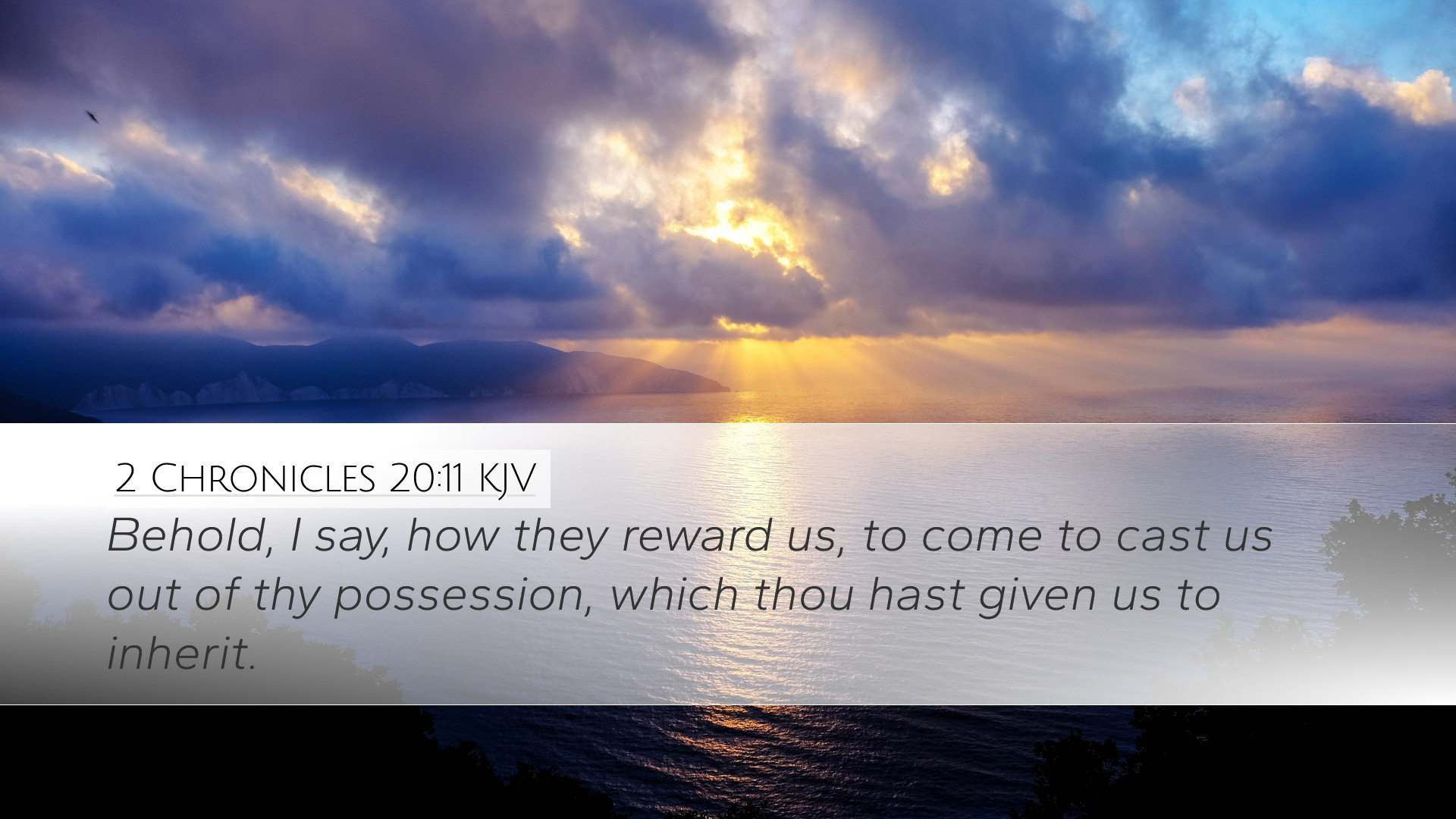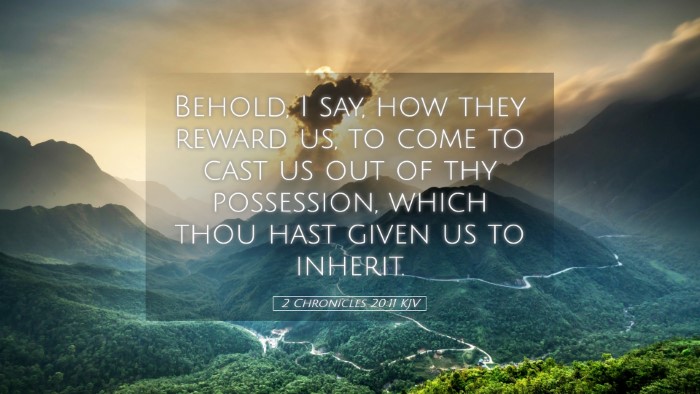Commentary on 2 Chronicles 20:11
Verse: 2 Chronicles 20:11
"Behold, they say, how we have called upon thee, and have made this evil against us." (2 Chronicles 20:11)
Contextual Overview
This verse is set within the narrative of King Jehoshaphat's prayer and plea for help against the coalition of armies threatening Judah. The context signifies the reliance on God amid overwhelming circumstances and highlights the urgency of calling upon divine aid through prayer.
The Significance of Complaint
In this passage, the people of Judah acknowledge the predicament they find themselves in. They do not simply voice their fear; rather, they articulate a recognition of falsehood in the persecution they are experiencing. Commentators, such as Matthew Henry, emphasize the importance of expressing one's grievances before God. This form of communication serves not merely as lamentation but as a profound trust in God's ability to rectify injustice.
- Expression of Distress: The Israelites clung to the covenantal promise while grappling with the realization that their adversaries accuse them unjustly.
- Recognition of God's Sovereignty: The act of crying out to God reinforces the foundational belief that divine intervention is crucial for their salvation.
Historical and Theological Implications
Albert Barnes provides a historical backdrop to this event, noting that such invasions were not uncommon for Israel. These frequent assaults illustrate Israel's fluctuating adherence to God’s commandments, often leading to periods of divine chastening.
Theologically, this verse signifies the juxtaposition of human despair against the backdrop of divine faithfulness. The plea presented by the people reflects a deep understanding of covenant relationships and highlights their expectation that God would act righteously on their behalf despite their circumstances.
- Covenantal Trust: The acknowledgment of God's nature as a protector who honors His promises is paramount in the Jewish faith.
- Call to Action: This verse serves as a call for believers to draw near to God, utilizing prayer as a means of accessing divine assistance.
Pastoral Reflections
This verse carries weighty implications for contemporary pastoral ministry. Adam Clarke highlights the importance of reminding congregations that God is aware of their struggles and injustices. It further illustrates that leaders should encourage their communities to express their fears and laments openly.
In pastoral care, there is a responsibility to guide believers in articulating their struggles to God, framing these cries for help within the truth of Scripture. This narrative serves as an invitation to embrace vulnerability in prayer, facilitating deeper relational intimacy with the Father.
Application for Theologians and Scholars
For theologians, the content of this verse invites rigorous examination of the nature of prayer, divine sovereignty, and human agency. It raises critical questions about the interplay between divine providence and human distress.
- Inquiry into Divine Justice: As scholars dissect this verse, they might ask how God's justice operates within the framework of human suffering.
- Exploration of Historical Context: This text becomes an important focal point for exploring ancient Near Eastern practices and beliefs regarding petitions to deities.
Conclusion
2 Chronicles 20:11 encapsulates a moment of crisis for Judah, yet it simultaneously serves as a beacon of hope, drawing attention to the relational responsiveness of God in moments of distress. Whether through the lens of pastoral reflection or theological inquiry, the insights gained from this verse reveal profound truths about lament, divine faithfulness, and the ongoing invitation to engage in prayer.


